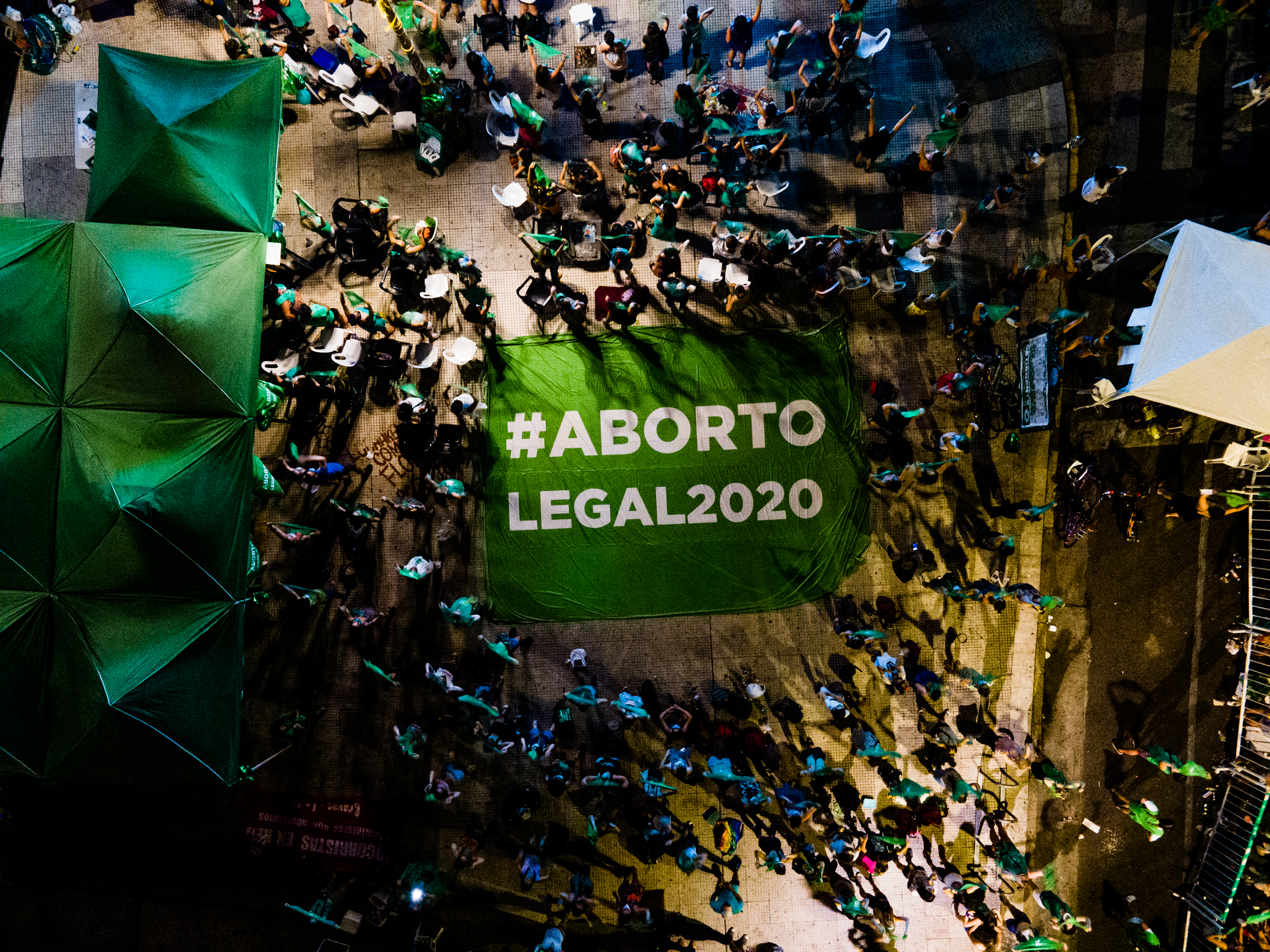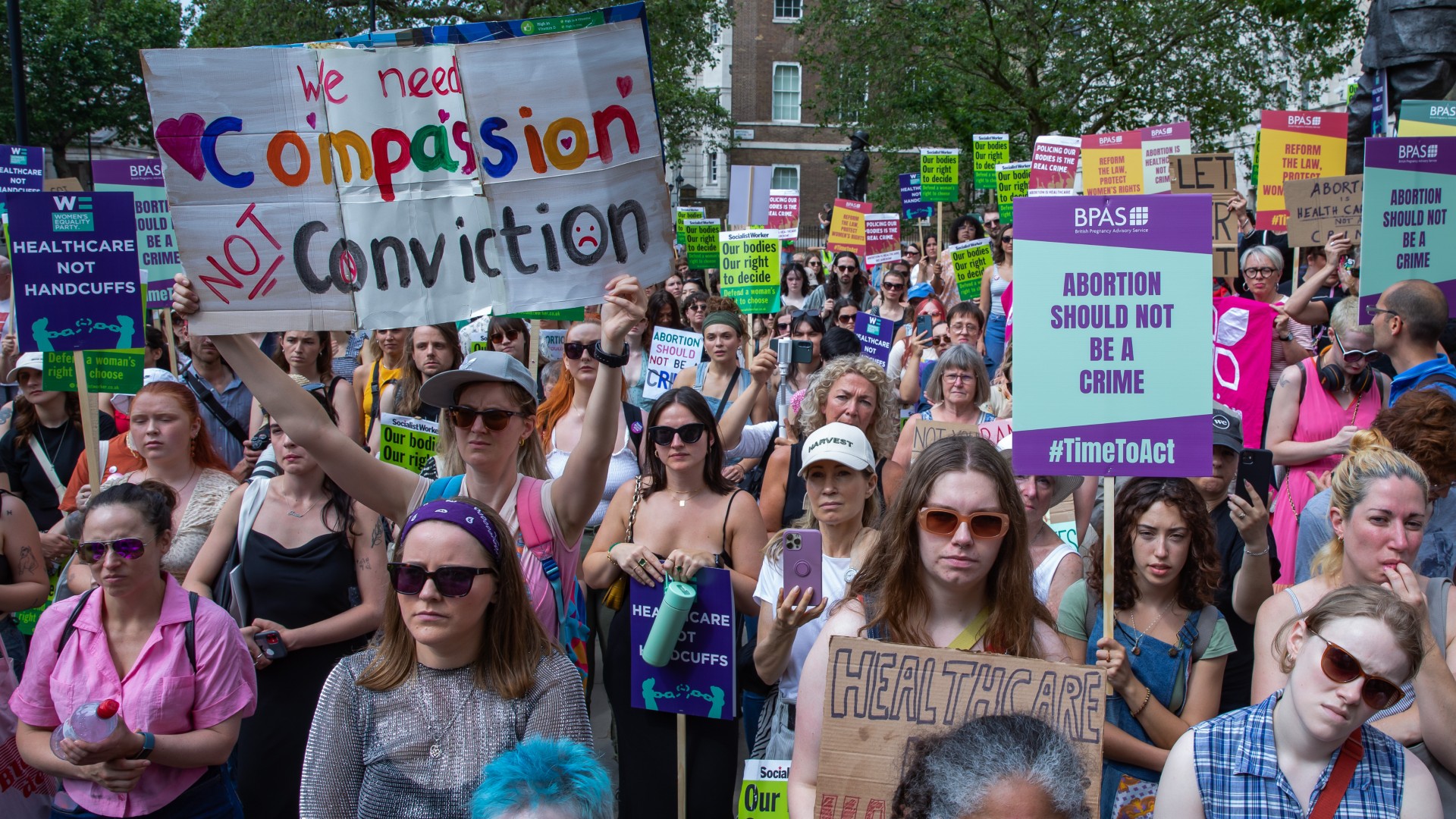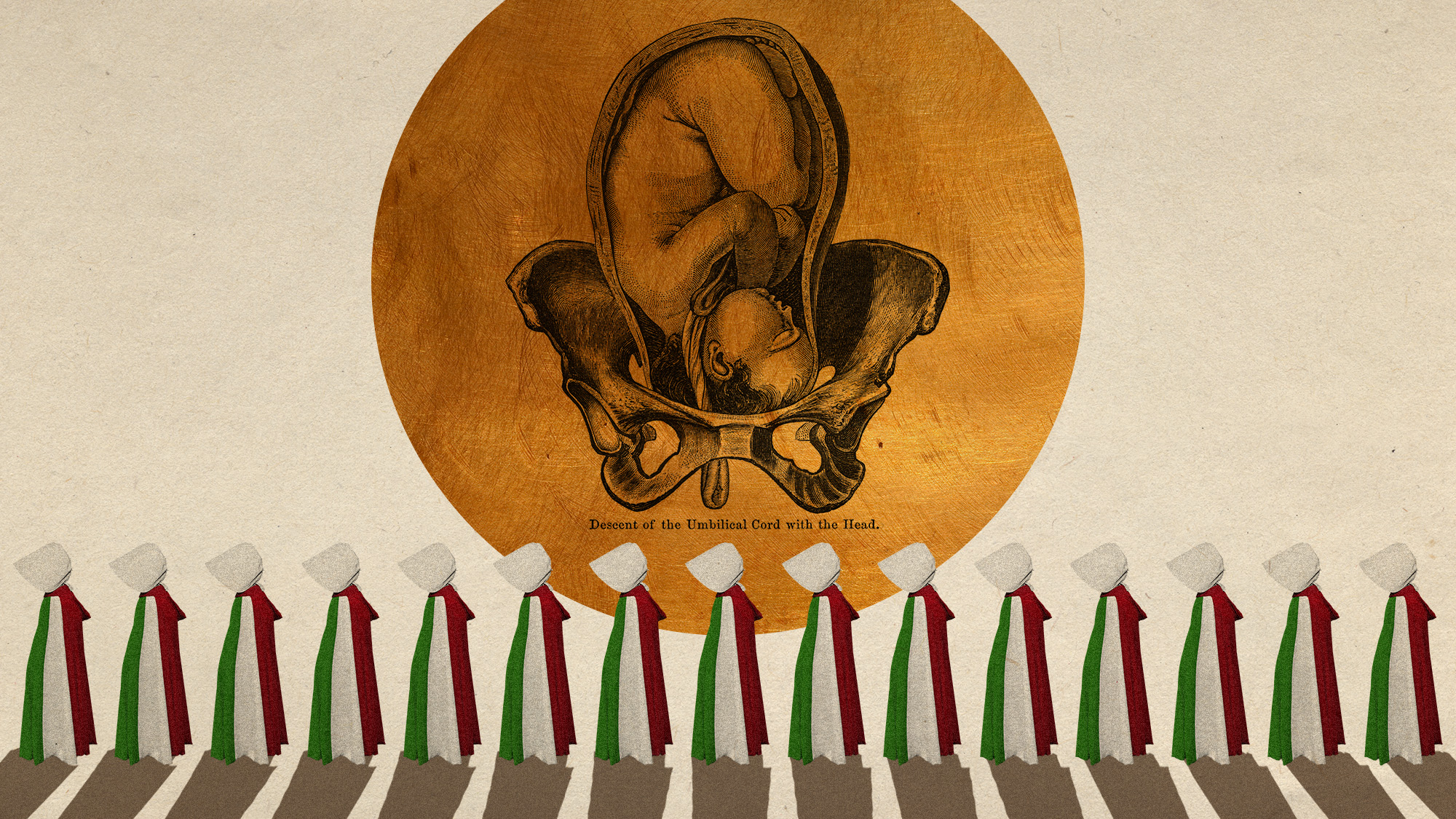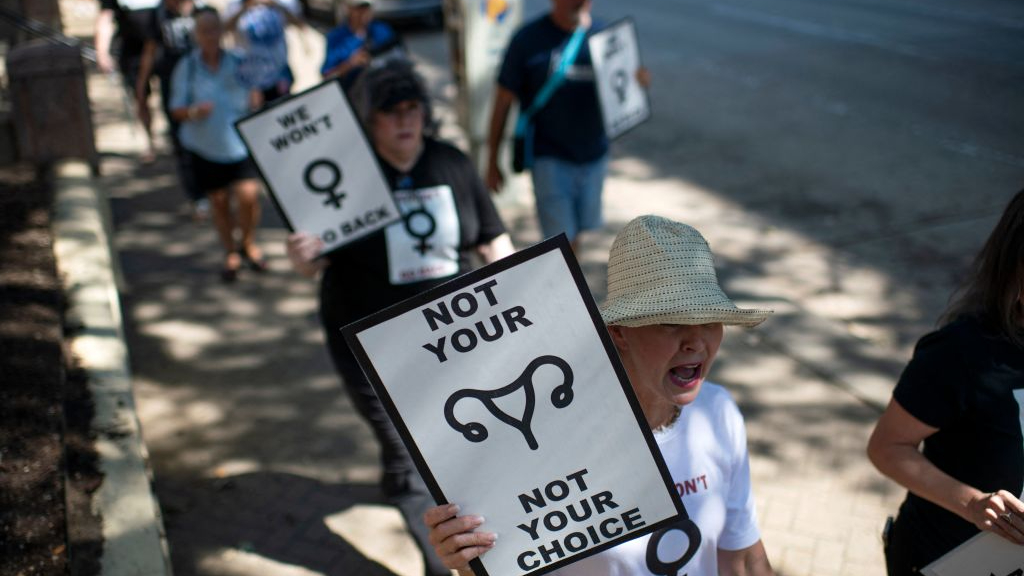Against the tide
In most of the world, abortion access has been rapidly expanding for decades.

A free daily email with the biggest news stories of the day – and the best features from TheWeek.com
You are now subscribed
Your newsletter sign-up was successful
In most of the world, abortion access has been rapidly expanding for decades. Here's everything you need to know:
Where is abortion legal?
In the 49 years since the landmark Roe v. Wade abortion case in 1973, much of the modern world has dramatically expanded access to abortion procedures. By overturning Roe, the U.S. became just one of four countries to roll back abortion rights since 1994, joining El Salvador, Nicaragua, and Poland — all heavily Roman Catholic countries. In the same time period, nearly 60 countries have liberalized their abortion laws, ranging from Ireland — which legalized abortion via public referendum in 2018 — to Mexico, Colombia, and Argentina. In the few countries that have rolled back abortion rights, access has become severely limited and women report being surveilled and patrolled if they become pregnant or have miscarriages. "Being pregnant means that police can come to you any time," said Polish activist Marta Lempart, "and prosecutors can come to you to ask you questions about your pregnancy."
When did abortion become commonplace?
Women have terminated their pregnancies using various methods since ancient times. In many societies, the practice of abortion was tolerated, including by the Puritans who first colonized North America. But a backlash arose in the English-speaking world during the 19th century, due to concerns over unsafe practices such as swallowing forms of poison, and male doctors' discomfort with the women's rights movement. In 1869, Pope Pius IX declared an embryo was a human being with a soul, challenging the long-standing belief that a fetus was not a person until it began moving in the womb ("the quickening"). Leftist European political movements, such as Republicans in Spain's Catalonia region, attempted to legalize abortion in the 1930s, but as a result the procedure became associated with socialism and women's equality in the U.S. — a significant obstacle that took abortion rights campaigners decades to overcome.
The Week
Escape your echo chamber. Get the facts behind the news, plus analysis from multiple perspectives.

Sign up for The Week's Free Newsletters
From our morning news briefing to a weekly Good News Newsletter, get the best of The Week delivered directly to your inbox.
From our morning news briefing to a weekly Good News Newsletter, get the best of The Week delivered directly to your inbox.
How do Europe's laws compare?
The differences between American and European abortion laws are complicated, especially in practice. Last year, Chief Justice John Roberts said Mississippi's ban on abortions after 15 weeks, or roughly the first trimester of pregnancy, was "the standard" around the world. But while many European countries do indeed have restrictions limiting abortions from 12 to 21 weeks, they also offer broad exceptions for reasons such as the mother's age, health, or socioeconomic status — and in practice, doctors easily grant them. About 95 percent of European woman of reproductive age live in countries where abortion is legal for a broad list of reasons, and the Guttmacher Institute estimates there are 73 million abortions every year throughout the world. Europe is also home to far more abortion clinics than the U.S., and in most countries the procedure is covered by universal health care and is free. Earlier this year, France expanded the legal limit for abortion from 12 to 14 weeks, while Spain passed a law criminalizing the harassment of women seeking abortions. After the U.S. overturned Roe, the European Union's parliament condemned the ruling in a 324-155 vote and called for reproductive freedom and "the human rights of women and girls" to be enshrined in the EU's charter.
How did the U.S. and Europe diverge?
The U.S. and Europe have several factors in common, including large, socially conservative Christian populations and robust anti-abortion movements. But in many European states and other countries around the world, abortion is protected by law rather than by court decision, making the protections less susceptible to lawsuits and the political makeup of courts. European countries from Ireland to Germany have passed legislation enshrining basic abortion protections. So have such countries as Uruguay, South Africa, and Thailand. In Mexico and Colombia, on the other hand, it was the courts that overturned previous abortion bans, and national legislatures have yet to pass laws legalizing the procedure. In Canada, the Supreme Court struck down an abortion ban in 1988, but no law has been passed. The court "didn't really establish an abortion right," said Bernard Dickens, a professor emeritus of health law and policy at the University of Toronto. "It simply took away the criminal penalty."
Will Roe's demise affect other countries?
Experts doubt that Roe will reverse the global trend toward expanding abortion access, but it could weaken localized movements dependent on U.S. support. In Africa, U.S. organizations have long provided access to contraceptives and promoted abortion rights. But when the Trump administration adopted a stringent "global gag rule" in 2017, cutting funding to any organizations that promote abortion, it shut down contraception services in Malawi, Senegal, and Kenya. Now, however, many U.S. neighbors are offering their services to American women who want abortions. Canadian clinics are bracing for an influx of women crossing the border, while in Mexico, the network Necesito Abortar Mexico says it has received a flurry of inquiries from women in the U.S. "We are here, they are not alone," said Sandra Cardona, a member of the network. "There should be no women without rights, which is what they are trying to do in the United States."
Millions of illegal abortions
Last November, Xaiana, a 23-year-old college student in northern Brazil, sent $285 to a drug dealer in the country's rural south for a pack of eight unmarked white pills of unknown origin. When she took them, they ended her eight-week pregnancy, but she bled for weeks afterward. "It was like a murder scene every time I had a shower," she said. Still, she resisted going to a clinic, as abortion is illegal in Brazil, punishable by up to three years in jail. In the Philippines, home to one of the world's strictest abortion bans, an estimated 1.1 million abortions occur every year, many administered by traditional healers or with herbal medicine sold outside churches. It is feared that more than 2,000 women die every year from unsafe procedures. "These are still preventable deaths and unnecessary suffering among women," said Jihan Jacob, senior legal adviser at the Center for Reproductive Rights. "Like in any other country that has restrictive laws, it does not prevent abortions, it just makes them unsafe."
A free daily email with the biggest news stories of the day – and the best features from TheWeek.com
This article was first published in the latest issue of The Week magazine. If you want to read more like it, you can try six risk-free issues of the magazine here.
-
 Why is the Trump administration talking about ‘Western civilization’?
Why is the Trump administration talking about ‘Western civilization’?Talking Points Rubio says Europe, US bonded by religion and ancestry
-
 Quentin Deranque: a student’s death energizes the French far right
Quentin Deranque: a student’s death energizes the French far rightIN THE SPOTLIGHT Reactions to the violent killing of an ultraconservative activist offer a glimpse at the culture wars roiling France ahead of next year’s elections
-
 Secured vs. unsecured loans: how do they differ and which is better?
Secured vs. unsecured loans: how do they differ and which is better?the explainer They are distinguished by the level of risk and the inclusion of collateral
-
 Is the UK about to decriminalise abortion?
Is the UK about to decriminalise abortion?Talking Point A rise in prosecutions has led Labour MPs to challenge the UK's abortion laws
-
 Abortions rise to record level 'due to cost of living'
Abortions rise to record level 'due to cost of living'Speed Read Low-income women face 'heart-breaking' choice, warns abortion charity chief
-
 Italian senate passes law allowing anti-abortion activists into clinics
Italian senate passes law allowing anti-abortion activists into clinicsUnder The Radar Giorgia Meloni scores a political 'victory' but will it make much difference in practice?
-
 France enshrines abortion rights in constitution
France enshrines abortion rights in constitutionspeed read It became the first country to make abortion a constitutional right
-
 Texas judge approves abortion of nonviable fetus, drawing threat from Texas attorney general
Texas judge approves abortion of nonviable fetus, drawing threat from Texas attorney generalSpeed Read Kate Cox petitioned to terminate her doomed pregnancy, salvaging her uterus and the option to try for more children
-
 Ohio voters defeat GOP measure to raise referendum threshold
Ohio voters defeat GOP measure to raise referendum thresholdSpeed Read
-
 Ohio is voting on whether to raise the bar on referendums — and a popular abortion amendment
Ohio is voting on whether to raise the bar on referendums — and a popular abortion amendmentSpeed Read
-
 Abortion law reform: a question of safety?
Abortion law reform: a question of safety?Talking Point Jailing of woman who took abortion pills after legal limit leads to calls to scrap ‘archaic’ 1861 legislation